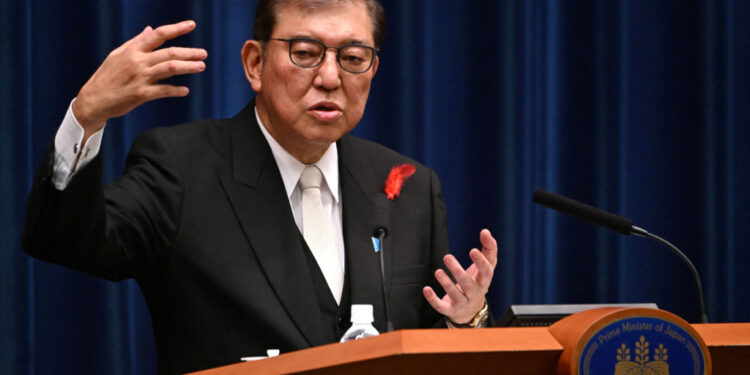*This article is part of a series of publications as part of our trip to Japan on the occasion of the Ticad 9
During the press conference held at the end of the Ticad 9 In Yokohama, we asked a direct question to the Japanese Prime Minister, Shigeru Ishiba :: How can Japan distinguish itself from other powers that strengthen their presence in Africa?
The Japanese Head of Government responded without detour that Japan does not adopt a logic of competition. “The need for development is immense on the African continent. Africa has the capacity and the right to diversify its partnerships, “he said, insisting on a approach based on the cooperation and complementarity.
This position reflects Tokyo’s desire to consolidate a singular relationship with Africa, which is not based solely on access to resources but on long -term commitments: Training, transfer of know-how and sustainable development.
Since its launch in 1993, Ticad has established itself as a privileged framework for strategic dialogue. Yokohama edition confirms that Japan seeks to build a relationship of trust with Africa, turned to the future, far from classic geopolitical rivalries.
What results?
The Ticad 9 in Yokohama ended with major commitments between Japan and Africa. Japanese Prime Minister Shigeru Ishiba has announced the creation of an economic zone connecting the Indian Ocean and Africa, in order to stimulate trade with India and the Middle East. Japan has also undertaken to grant $ 5.5 billion in loans in collaboration with the African Development Bank, while launching a vast training program aimed at preparing 30,000 African specialists in artificial intelligence over the next three years.
More than 300 cooperation agreements were signed, three times more than during the previous edition in Tunis in 2022, covering key sectors such as infrastructure, health, technology, education and agriculture. Finally, the conference adopted the Yokohama declaration, which emphasizes innovation, sustainable energy, climate finance and the integration of young people as central actors in the continent.








